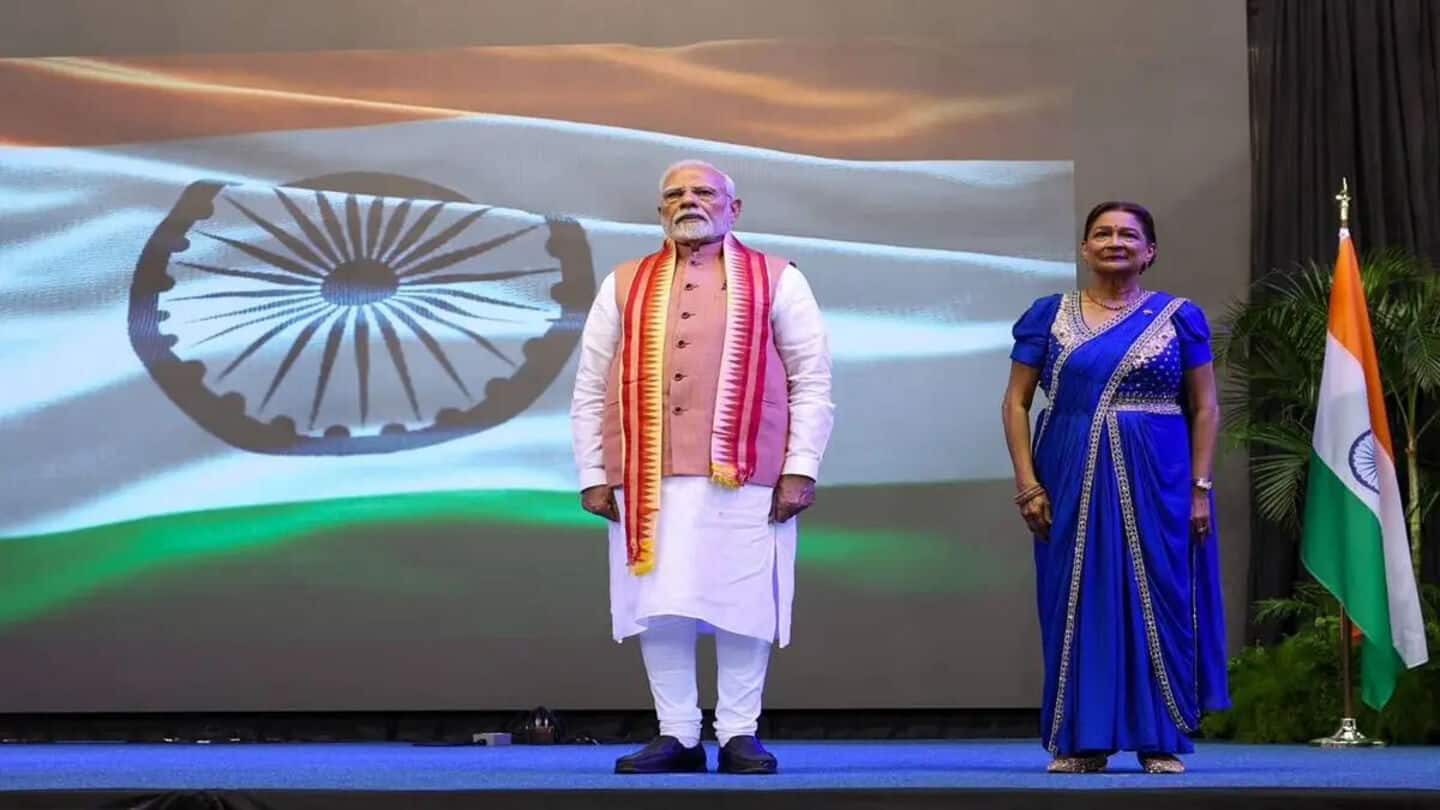
Modi calls Trinidad PM 'Bihar's daughter'—what's her connection to India
What's the story
Prime Minister Narendra Modi landed in Trinidad and Tobago on Friday as part of his two-day official visit. He was warmly welcomed by PM Kamla Persad-Bissessar at the airport, while a special Guard of Honor and Bhojpuri Chautaal music played in the background. In a gesture of goodwill, PM Modi gifted a replica of Ram Mandir and sacred water from Ayodhya's Sarayu River and the Sangam at Mahakumbh to strengthen cultural ties between India and Trinidad and Tobago.
Cultural embrace
Modi gifts replica of Ram Mandir to TT PM
Later, speaking to the Indian community who were waiting for him, he said, "We are not just connected by blood or surname, we are connected by belonging. India looks out to you and welcomes you. The ancestors of PM Kamla were from Bihar's Buxar....People consider her the daughter of Bihar." At a community event, PM Modi also announced that Overseas Citizenship of India (OCI) cards would be extended to the sixth generation of Indian-origin families in Trinidad and Tobago.
Twitter Post
Modi addressing the Indian community
#WATCH | Trinidad and Tobago | Addressing the Indian community, PM Modi says, "OCI cards will now be given to the 6th generation of the Indian diaspora in Trinidad and Tobago... We are not just connected by blood or surname, we are connected by belonging. India looks out to you… pic.twitter.com/hBU8tqCb9c
— ANI (@ANI) July 4, 2025
Diaspora recognition
Kamla Persad-Bissessar's ancestral roots in India
This allows them to live and work without restrictions. He called the Indian diaspora "Rashtradoots" or ambassadors of India's values and culture. The Caribbean nation has a significant Indian diaspora, with nearly 45% of its population tracing their roots to India. PM Kamla herself has strong ancestral ties to India. Her great-grandfather was an indentured laborer from Bhelupur village in Bihar who migrated to the Caribbean during British colonial rule. In 2012, she visited her ancestral village in Bihar.
Migration history
Connection between India and Trinidad and Tobago
The connection between India and Trinidad and Tobago dates back over 175 years. From 1845 to 1917, the British brought around 143,000 bonded laborers from India to work on Caribbean sugar plantations after slavery was abolished. Most of these workers hailed from present-day Uttar Pradesh and Bihar, passing through the Kolkata and Chennai ports. These migrants faced tough conditions but eventually became an integral part of local society.